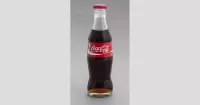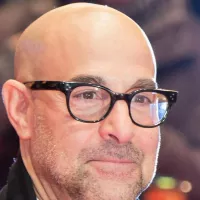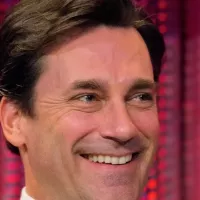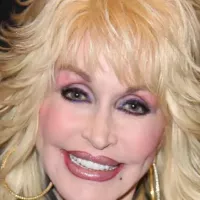Wayne Gretzky, nicknamed "The Great One," is widely considered the greatest ice hockey player of all time. He played 20 seasons in the NHL, from 1979 to 1999, for four teams. Gretzky holds numerous NHL records, including leading career point scorer and assist producer. He is the only NHL player to surpass 200 points in a single season, achieving this feat four times. He also recorded over 100 points in 15 professional seasons. Upon his retirement in 1999, Gretzky held 61 NHL records.
1944: Maurice Richard set 50 Goals in 50 Games
During the 1944-45 NHL season, Maurice "Rocket" Richard set the record of 50 goals in 50 games.
1960: Marriage of Phyllis Leone and Walter Gretzky
In 1960, Phyllis Leone Hockin and Walter Gretzky got married in Brantford, Ontario.
January 26, 1961: Wayne Gretzky's Birth
On January 26, 1961, Wayne Douglas Gretzky was born in Brantford, Ontario, Canada.
1963: Birth of Sister Kim
In 1963, Wayne Gretzky's sister, Kim, was born.
1967: Companions of Order of Canada
Between 1967 and 2015, 467 individuals had been appointed as Companions of the Order of Canada.
October 1971: Profile in the Toronto Telegram
In October 1971, Wayne Gretzky's hockey play was profiled by John Iaboni in the Toronto Telegram.
1972: Summit Series
In 1972, the Summit Series took place, influencing Gretzky's style of play and the NHL in general by showcasing a more team-oriented approach by the Soviets.
1972: Struggles in the World Hockey Association Begin
In 1972, the World Hockey Association, which had competed with the established NHL, was struggling to continue competing.
1974: Quebec International Pee-Wee Hockey Tournament
In 1974, Wayne Gretzky scored 26 points while playing for Brantford in the Quebec International Pee-Wee Hockey Tournament.
February 1975: Booed at Maple Leaf Gardens
In February 1975, Wayne Gretzky was booed on "Brantford Day" at Toronto's Maple Leaf Gardens.
1977: Drafted by Sault Ste. Marie Greyhounds
In 1977, Wayne Gretzky was drafted by the Sault Ste. Marie Greyhounds of the Ontario Major Junior Hockey League, and began wearing the number 99 on his jersey.
June 12, 1978: Signed with Indianapolis Racers
On June 12, 1978, Wayne Gretzky, at age 17, signed a seven-year personal services contract with the Indianapolis Racers of the World Hockey Association, worth US$1.75 million.
1978: World Hockey Association Struggling
By 1978, the World Hockey Association was struggling with only seven surviving franchises.
1978: Top Scorer in World Junior Championships
In 1978, Wayne Gretzky became the top scorer in the World Junior Championships.
1978: World Junior Championships
In 1978, at age 16, Wayne Gretzky made his first international appearance at the World Junior Championships in Montreal, Quebec. Despite initial skepticism, he led the tournament in scoring with 17 points, earning All-Star Team and Best Forward honors. Canada finished with the bronze medal.
January 26, 1979: Signed 10-Year Personal Services Contract with Oilers
On January 26, 1979, his 18th birthday, Wayne Gretzky signed a ten-year personal services contract with the Edmonton Oilers, worth CA$3 million, and finished third in the league in scoring, capturing the Lou Kaplan Trophy as rookie of the year.
1979: Hart Memorial Trophy and Scoring Lead Tie
During his first NHL season in 1979-80, Wayne Gretzky was awarded the Hart Memorial Trophy as the NHL's Most Valuable Player and tied for the scoring lead with Marcel Dionne, with 137 points. Although Gretzky played 79 games to Dionne's 80, Dionne was awarded the Art Ross Trophy because he had scored more goals (53 to 51).
1979: Appearance in the WHA All-Star Game
In 1979, Wayne Gretzky appeared in the WHA All-Star Game, playing on a line with Gordie Howe and Mark Howe. The WHA All-Stars won the three-game series against Dynamo Moscow.
1979: NHL Debut
In 1979, Wayne Gretzky debuted in the NHL. Despite concerns that he was too small and slow, he tied for first place in scoring and won the Hart Trophy, demonstrating his value to the league.
1979: WHA Folds and Oilers Join NHL
In 1979, the World Hockey Association (WHA) folded and the Edmonton Oilers, along with three other teams, joined the National Hockey League (NHL) as expansion franchises, with Gretzky being allowed to stay on the Oilers roster despite the NHL's minimum age rule.
1980: Mike Bossy Tied 50 Goals in 50 Games
During the 1980-81 NHL season, Mike Bossy tied Maurice "Rocket" Richard's record of 50 goals in 50 games. Wayne Gretzky broke this record during the 1981-82 season.
1980: Lady Byng Trophy
In 1980, Gretzky was presented with the Lady Byng Trophy, an award that recognizes sportsmanship and performance in the NHL.
1980: Exceptional Stamina
In 1980, Wayne Gretzky's stamina was tested by an exercise physiologist who tested the recuperative abilities of the Edmonton Oilers. Gretzky scored so high the tester thought the machine was broken.
1980: Baseball Contract Offer
In the summer of 1980, Wayne Gretzky batted .492 for the Junior Intercounty Baseball League's Brantford CKCP Braves, leading to an offer from the Toronto Blue Jays.
December 30, 1981: Scored 50 Goals in 39 Games
On December 30, 1981, Wayne Gretzky scored his 50th goal of the season in only 39 games, breaking the record held by Maurice "Rocket" Richard, in a 7-5 win against the Philadelphia Flyers.
1981: Canada Cup Debut
In 1981, Wayne Gretzky debuted with the Canadian national team at the Canada Cup. He led the tournament in scoring with 12 points, but Canada lost the final against the Soviet Union.
1981: Gretzky Leads NHL in Goals
In 1981, Wayne Gretzky led the NHL in goals scored, a feat he repeated five times between 1981-82 and 1986-87.
1981: Single Season Scoring Record
In 1981, Wayne Gretzky set the single-season scoring record. In his second year in the league he racked up 164 points.
1981: Art Ross Trophy and Stanley Cup Playoffs Record
In 1981, Wayne Gretzky won the Art Ross Trophy with a then-record 164 points and had five assists in the first game of the Stanley Cup playoffs, setting a single game playoff record.
1981: Art Ross Trophy
In 1981, Wayne Gretzky won the Art Ross Trophy, which is presented to the NHL's season points leader. This marked the beginning of a decade-long dominance in securing the award.
February 24, 1982: Broke Esposito's Record for Most Goals in a Season
On February 24, 1982, Wayne Gretzky broke Phil Esposito's record for most goals in a season (76), scoring three in a 6-3 win against the Buffalo Sabres.
1982: Oilers High Scoring Offense
Between 1982 and 1985, the Edmonton Oilers averaged 423 goals a season, when no previous team had scored 400.
1982: Broke Assists Record
In the 1982-83 season, Gretzky broke his assists record with 125.
1983: Oilers in Stanley Cup Finals
In 1983, the Edmonton Oilers, with Wayne Gretzky as captain, reached the Stanley Cup Finals but were swept by the New York Islanders.
1984: Edmonton Oilers Team voted Greatest NHL Team Ever
In 1984 the Edmonton Oilers team was voted the greatest NHL team ever as part of the NHL's centennial celebrations, directly impacted by the June 1985 rule change.
1984: Officer of the Order of Canada
In 1984, Gretzky was appointed an Officer of the Order of Canada, a recognition of his contributions to the country.
1984: Broke Assists Record
In the 1984-85 season, Gretzky broke his assists record with 135.
June 1985: Introduction of Offsetting Penalties
In June 1985, the NHL Board of Governors introduced offsetting penalties, which led to Gretzky criticizing the NHL for punishing teams that benefited from the previous rules, the rule change became known as "the Gretzky rule".
1985: Oilers High Scoring Offense
Between 1982 and 1985, the Edmonton Oilers averaged 423 goals a season, when no previous team had scored 400.
1985: Conn Smythe Trophy
In 1985, Gretzky was named the MVP of the Stanley Cup playoffs, earning him the Conn Smythe Trophy.
1985: Broke Assists Record and Point Record
In the 1985-86 season, Gretzky broke his assists record with 163 and his point record with 215.
1986: Gretzky Leads NHL in Goals
In 1986, Wayne Gretzky led the NHL in goals scored, a feat he repeated five times between 1981-82 and 1986-87.
1986: Maintained Assist Record
In the 1986-87 season, Gretzky maintained his assist record with 121.
1987: Gretzky's Contract Changes
In 1987, Wayne Gretzky and Oilers owner Peter Pocklington replaced Gretzky's personal services contract with a standard NHL contract amid financial concerns and Gretzky's growing dissatisfaction.
1987: Canada Cup Highlight
In 1987, Wayne Gretzky played in the Canada Cup, a tournament he has called the best hockey he ever played. He recorded a tournament-best 21 points in nine games, playing on a line with Mario Lemieux. They combined for the game-winner in the deciding game three against the Soviets, securing the tournament win for Canada.
August 9, 1988: Gretzky Traded to Los Angeles Kings
On August 9, 1988, Wayne Gretzky, along with Marty McSorley and Mike Krushelnyski, was traded from the Edmonton Oilers to the Los Angeles Kings for Jimmy Carson, Martin Gélinas, $15 million in cash, and first-round draft picks.
1988: Gretzky's Return to Edmonton
In 1988, Wayne Gretzky made his first appearance in Edmonton after being traded to the Los Angeles Kings, receiving a four-minute standing ovation and reaffirming his Canadian patriotism.
1988: Conn Smythe Trophy
In 1988, Wayne Gretzky was awarded the Conn Smythe Trophy again as the MVP of the Stanley Cup playoffs.
1988: Trade to Los Angeles Kings
In 1988, Wayne Gretzky was traded to the Los Angeles Kings, along with Marty McSorley, who continued to play the role of his protector.
1988: Oilers Plan to Trade Gretzky
In 1988, shortly after the Oilers won the Stanley Cup, Gretzky learned that the team was planning to trade him due to the owner's financial issues and Wayne agreed to a trade to the Los Angeles Kings.
1988: Gretzky Captains Oilers
Wayne Gretzky served as the captain of the Edmonton Oilers until 1988.
1989: Kings' Draft Pick
In 1989, the Los Angeles Kings' first-round draft pick from the Gretzky trade was later traded to the New Jersey Devils, who used it to select Jason Miller.
1990: Gretzky Named Athlete of the Decade
In 1990, Wayne Gretzky was named Male Athlete of the Decade by the Associated Press. In the same year the Oilers won the Stanley Cup, their first without Gretzky, and Messier dedicated the win to him.
1990: Maintained Assist Record
In the 1990-91 season, Gretzky maintained his assist record with 122.
1991: Final Canada Cup
In 1991, Wayne Gretzky participated in the last Canada Cup tournament. He led the tournament in scoring with 12 points in seven games but missed the final against the United States due to a back injury. Canada still won the tournament.
1991: Kings' Draft Pick
In 1991, the Los Angeles Kings' first-round draft pick from the Gretzky trade was used to select Martin Ručinský.
1992: Gretzky's Point Streak Ends
In 1992, Wayne Gretzky was sidelined with a back injury which ended a record 13-year streak in which he recorded at least 100 points each season.
1992: Reversal of "The Gretzky Rule"
In 1992, the offsetting penalties rule, previously known as "the Gretzky rule", was reversed for the 1992-93 season.
January 6, 1993: Gretzky's 1,000th NHL Game
On January 6, 1993, Wayne Gretzky returned from a back injury for his 1,000th NHL game.
1993: Led Kings to Stanley Cup Finals
In 1993, Wayne Gretzky led the Los Angeles Kings to the Stanley Cup Finals, contributing to the popularization of hockey in California.
1993: Kings' Draft Pick
In 1993, the Los Angeles Kings' first-round draft pick from the Gretzky trade was used to select Nick Stajduhar.
1994: Kings' Ownership Change
In 1994, McNall was forced to sell the Kings, and Gretzky's relationship with the new owners grew strained.
1994: Art Ross Trophy
In 1994, Wayne Gretzky won his tenth Art Ross Trophy, awarded to the NHL's season points leader, between 1981 and 1994.
February 27, 1996: Gretzky Traded to St. Louis Blues
On February 27, 1996, Wayne Gretzky was traded to the St. Louis Blues for Patrice Tardif, Roman Vopat, Craig Johnson and two draft picks, he was immediately named the team's captain.
1996: World Cup Appearance
In 1996, Wayne Gretzky played in the revived tournament, renamed the World Cup. It marked the first time Gretzky did not finish as the tournament's leading scorer, placing fourth overall with seven points in eight games.
1996: Gretzky Joins the New York Rangers
In 1996, Wayne Gretzky signed with the New York Rangers for his final three seasons in the NHL.
1996: Gretzky's Deal with Canucks Falls Through
In 1996, a verbal agreement between Wayne Gretzky and the Vancouver Canucks fell through due to a disagreement over the timing of the contract signing.
1996: Gretzky Requests a Trade
In early 1996, Wayne Gretzky requested a trade from the Los Angeles Kings due to the team's financial instability.
November 29, 1997: Olympic Team Selection
On November 29, 1997, Wayne Gretzky was named to the Canadian national team for the 1998 Winter Olympics in Nagano, Japan, marking the first time NHL players were eligible to participate.
1997: Gretzky Voted Greatest NHL Player
In 1997, The Hockey News committee voted Wayne Gretzky the greatest player in NHL history.
1997: Rangers Reach Eastern Conference Finals
In 1997, Wayne Gretzky helped the New York Rangers reach the Eastern Conference Finals.
1998: Leadership at the Olympics
During the 1998 Olympics in Japan, Wayne Gretzky's improvisational skills made him a team leader, even though he was an older player and had been passed over for the captaincy.
1998: Gretzky breaks professional goal-scoring record
During the 1998–99 season Wayne Gretzky broke Gordie Howe's professional total goal-scoring record of 1,071 goals.
1998: Nagano Winter Olympics
In 1998, Wayne Gretzky participated in the Winter Olympics in Nagano, Japan, where the Canadian team lost to the Czech Republic in the semi-finals after a shootout where Gretzky was controversially not selected as a shooter. Canada then lost the bronze medal game to Finland, finishing without a medal. This was Gretzky's final international appearance.
1998: Greatest Hockey Player of All Time
In 1998, the Hockey News named Gretzky the greatest hockey player of all time.
1998: Kings Fail to Qualify for Playoffs
In 1998, the Los Angeles Kings qualified for the playoffs after a long slide.
1998: Gretzky Leads NHL in Assists
In the 1997-98 season, Wayne Gretzky topped the NHL with 67 assists alongside Jaromir Jagr.
April 15, 1999: Gretzky's Last Game in Canada
On April 15, 1999, Wayne Gretzky played his last NHL game in Canada, a 2–2 tie against the Ottawa Senators, where he was awarded all three stars.
April 18, 1999: Gretzky's final game
On April 18, 1999, Wayne Gretzky played the final game of his NHL career, which was a 2–1 overtime loss to the Pittsburgh Penguins at Madison Square Garden. Both the Canadian and American national anthems were altered to honor Gretzky's departure, and Gretzky assisted on the New York's only goal. At the time, he was the second-to-last WHA player still active in professional hockey.
August 1999: Open Ice Summit
In August 1999, Wayne Gretzky was named honorary chairman of the Open Ice Summit, which discussed improvements to Canadian ice hockey. He advocated for playing and practicing hockey out of love for the game and emphasized the importance of skill development over talent.
October 1999: Wayne Gretzky Drive
In October 1999, Edmonton honored Wayne Gretzky by renaming Capilano Drive, a freeway near Northlands Coliseum, to Wayne Gretzky Drive.
November 22, 1999: Hockey Hall of Fame Induction
On November 22, 1999, Wayne Gretzky was inducted into the Hockey Hall of Fame, bypassing the three-year waiting period. He was the tenth and last player to do so.
1999: Lady Byng Trophy
In 1999, Wayne Gretzky received the Lady Byng Trophy, which recognizes sportsmanship and performance, for the fifth time.
1999: Induction into Hockey Hall of Fame and Jersey Retirement
In 1999, Wayne Gretzky retired from professional hockey and was immediately inducted into the Hockey Hall of Fame, with the NHL retiring his jersey number 99 league-wide.
1999: Induction into Hockey Hall of Fame
In 1999, Wayne Gretzky was inducted into the Hockey Hall of Fame, marking a significant recognition of his contributions to the sport.
February 6, 2000: NHL Retires Number 99
On February 6, 2000, the NHL retired Gretzky's number 99 across the entire league, an unprecedented honor.
May 2000: Phoenix Coyotes Stake
In May 2000, Wayne Gretzky agreed to buy a 10% stake in the Phoenix Coyotes, becoming alternate governor, managing partner, and head of hockey operations, helping to avert a potential move to Portland, Oregon.
2000: Part-Owner of Phoenix Coyotes and IIHF Hall of Fame Induction
In 2000, Wayne Gretzky became part-owner of the Phoenix Coyotes and was inducted into the IIHF Hall of Fame.
2000: Jersey Retirement and IIHF Hall of Fame Induction
In 2000, Wayne Gretzky's jersey number 99 was retired league-wide at the NHL All-Star Game. He was also inducted into the IIHF Hall of Fame in 2000.
February 15, 2001: Coyotes Sale Completion
On February 15, 2001, the sale of the Phoenix Coyotes was completed after securing financing and partners, with Wayne Gretzky and Steve Ellman taking over ownership. Jerry Moyes was added to the partnership, and Gretzky's agent, Michael Barnett, became the team's General Manager.
2002: Executive Director for Canadian National Men's Hockey Team
In 2002, Wayne Gretzky served as the executive director for the Canadian national men's hockey team during the Winter Olympics, where the team won a gold medal.
2002: Honors and Recognition in 2002
In 2002, the Los Angeles Kings held a jersey retirement ceremony and erected a life-sized statue of Wayne Gretzky outside the Staples Center. Gretzky also received a star on Canada's Walk of Fame in Toronto.
2004: Brantford Walk of Fame
In 2004, Wayne Gretzky was inducted into Brantford's "Walk of Fame".
2004: Inducted into the Ontario Sports Hall of Fame
In 2004, Wayne Gretzky was inducted into the Ontario Sports Hall of Fame.
August 8, 2005: Head Coach of the Coyotes
On August 8, 2005, Wayne Gretzky agreed to become head coach of the Phoenix Coyotes.
May 31, 2006: Five-Year Contract
On May 31, 2006, Wayne Gretzky agreed to a five-year contract to remain head coach of the Phoenix Coyotes.
2006: Rangers Return to Playoffs
In 2006, the New York Rangers returned to the playoffs, after Wayne Gretzky retired.
May 5, 2009: Coyotes Bankruptcy Filing
On May 5, 2009, the Coyotes' holding company, Dewey Ranch Hockey LLC, filed for Chapter 11 bankruptcy, leading to an ownership dispute and uncertainty about Gretzky's role with the team.
September 2009: Resigned as Head Coach and Relinquished Ownership Share of Phoenix Coyotes
In September 2009, Wayne Gretzky resigned as head coach and relinquished his ownership share of the Phoenix Coyotes following the team's bankruptcy.
September 24, 2009: Resignation from Coyotes
On September 24, 2009, Wayne Gretzky stepped down as head coach and head of hockey operations of the Phoenix Coyotes due to an uncertain contractual status and the team's bankruptcy proceedings.
2009: Companion of the Order of Canada
In 2009, Gretzky was promoted to the highest rank, becoming a Companion of the Order of Canada, recognizing his continued impact and achievements.
May 10, 2010: Ambassador Award of Excellence
On May 10, 2010, Wayne Gretzky was awarded The Ambassador Award of Excellence by the LA Sports & Entertainment Commission.
2015: Scheduling Conflicts
In 2015, Gretzky's agent cited scheduling conflicts as the reason for his inability to attend the investiture ceremony for the Order of Canada.
2015: Attempts to Arrange Investiture
In 2015, a spokesperson for the Governor General's office confirmed that attempts had been made to arrange an investiture ceremony for Gretzky.
October 2016: Returned to Oilers as Minority Partner and Vice-Chairman
In October 2016, Wayne Gretzky returned to the Oilers as a minority partner and vice-chairman of their parent company, Oilers Entertainment Group.
2017: 100 Greatest NHL Players
In 2017, Gretzky was named one of the 100 Greatest NHL Players by the league.
May 2021: Hockey Card Sale
In May 2021, one of Wayne Gretzky's 1979 O-Pee-Chee hockey cards was sold for US$3.75 million.
2021: Became an Analyst on Turner Sports' NHL Coverage
In 2021, Wayne Gretzky left the Oilers and became an analyst on Turner Sports' NHL coverage.
2023: Greatest of All Time
In 2023, The Athletic named Gretzky the greatest hockey player of all time.
2025: Absence from Investiture
As of 2025, Wayne Gretzky had not yet attended the investiture in Ottawa to be formally recognized as a Companion of the Order of Canada.
Mentioned in this timeline

Coca-Cola is a globally recognized cola soft drink produced by...
Ukraine is a country in Eastern Europe the second-largest on...

George W Bush the rd U S President - is...
California is a U S state on the Pacific Coast...
Saturday Night Live SNL is a late-night live sketch comedy...
The Union of Soviet Socialist Republics USSR existed from to...
Trending

48 minutes ago Hilary Knight criticizes Trump's White House invite as distasteful and reacts to Trump's joke.

5 months ago Jon Hamm: From Mad Men to a Beloved Actor

49 minutes ago Dolly Parton Praises 'Son of Jolene,' Sequel to Iconic Hit 'Jolene' Released
17 hours ago IonQ Stock Surges After Earnings Beat; Optimistic 2026 Revenue Forecast Released.
49 minutes ago Eva Marcille Hints at Possible Return to RHOA: 'Never Say Never'

2 hours ago Brooks Koepka aims to contend at PGA Tour's Cognizant Classic after comeback.
Popular

Jesse Jackson is an American civil rights activist politician and...

Susan Rice is an American diplomat and public official prominent...

Barack Obama the th U S President - was the...

XXXTentacion born Jahseh Dwayne Ricardo Onfroy was a controversial yet...

Michael Joseph Jackson the King of Pop was a highly...

Michael Jordan widely considered one of basketball's greatest players significantly...
